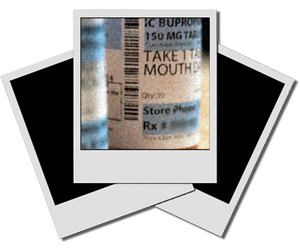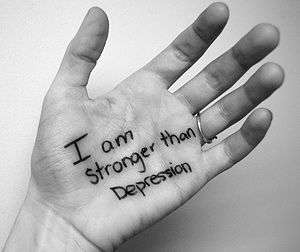Depression Quest – A Journey
by Ian
 It’s quite tricky to know where to start with Depression Quest. At its heart, it’s a cleverly made ‘choose your own story’ type game. You are presented with a scenario, and given a set of options to choose in response. You can only choose one, which leads you to the next scenario based on your choice, which in turn was influenced by the chooses that precede it. It’s almost a very clever flow chart.
It’s quite tricky to know where to start with Depression Quest. At its heart, it’s a cleverly made ‘choose your own story’ type game. You are presented with a scenario, and given a set of options to choose in response. You can only choose one, which leads you to the next scenario based on your choice, which in turn was influenced by the chooses that precede it. It’s almost a very clever flow chart.
This description does Depression Quest an incredible disservice.
This game is a personal journey through the mind of a depressed person. As someone that has suffered from depression in the past, and still struggles with some of the demons that come from it, the game resonated with me more deeply than any other interactive experience I’ve ever had – and this from the guy that cried at the end of Final Fantasy X. Yep. That guy.
Created by independent game maker Zoe Quinn, the game ‘aims to show other sufferers of depression that they are not alone in their feelings, and to illustrate to people who may not understand the illness the depths of what it can do to people.’ From a personal level, I believe that the game entirely achieves this aim.
Without wishing to go in to too much depth – I thoroughly recommend that you play for yourself and see – Depression Quest really nails the feeling of living with depression. I’d go as far as saying it’s a landmark for emotional connections in interactive media. I’m not too proud to admit that the game brought many feelings back to the surface that I thought had gone for good, leaving me close to tears by the time I’d reached an end. By channeling my own experience I’d managed to come through the depths of depression in the game to see that things aren’t so bad – but there are plenty of others that haven’t been so lucky, both in the game and in life.
 A clever device used in the game is the blocking off of some options based on your choices in previous scenarios. I’ve been asked by a friend previously what depression is like, and my response to them was simply to ask them to play this game. Their first question was why they couldn’t choose the option that made most sense to them on a particular scenario. This is where it’s so clever – for someone with depression, sometimes the ‘right’ answer just doesn’t seem viable. Sometimes you can’t just tell someone how you feel. Sometimes you can’t just get up and go to work and act like everything is ok, and Depression Quest demonstrates this masterfully. It channels you down the train of thought of a depressed person, quickly closing avenues off to you – as time goes on, you have fewer and fewer ways to ‘win’.
A clever device used in the game is the blocking off of some options based on your choices in previous scenarios. I’ve been asked by a friend previously what depression is like, and my response to them was simply to ask them to play this game. Their first question was why they couldn’t choose the option that made most sense to them on a particular scenario. This is where it’s so clever – for someone with depression, sometimes the ‘right’ answer just doesn’t seem viable. Sometimes you can’t just tell someone how you feel. Sometimes you can’t just get up and go to work and act like everything is ok, and Depression Quest demonstrates this masterfully. It channels you down the train of thought of a depressed person, quickly closing avenues off to you – as time goes on, you have fewer and fewer ways to ‘win’.
The writing is superb. The way it frames the scenarios alongside ‘your’ way of thinking. The opening gives you a background and fills in your life – it tells you about your girlfriend, your friends, your family and your day job. The first few scenarios set up your current standing in life – you’re struggling for motivation with a personal project, and can’t stand work. Some progress indicators at the bottom of the screen constantly remind you of your current mental state and well-being.
Far from being a ‘game device’, these indicators actually serve as a parallel for the very real sensation of always being acutely aware of how you are when you are depressed. In the game, as in life, you can’t immediately have any impact on these statuses – they simply sit there telling you how it is. The starting phrase is ‘you are very depressed. You spend a large amount of time sleeping, hating yourself, and have very little energy or motivation.’ It takes a lot of time and effort to make a change to this, and if you’re not careful it can easily become worse. In fact, it’s often made a lot worse before it can be better, in yet another parallel for life.
As I said, this is a pretty personal piece for me. I’m bringing up a lot of memories and feelings playing and writing about Depression Quest but the most glowing recommendation that I can give it is that none of that stops me from wanting to do this. As the game’s descriptions states, it really does help sufferers know that they’re not alone – a prevalent thought amongst sufferers, the feeling of being alone and isolated – and it gives at least a small insight to people that otherwise may have no knowledge of the condition.
 Please, go and play it. It’ll take half an hour of your life, but the experience that it gives you could be the difference between being the friend that understands and being the friend that alienates. I’ve honestly never played anything that hits the spot so succinctly with its chosen theme, nor anything that’s ever resonated so deeply at an emotional level.
Please, go and play it. It’ll take half an hour of your life, but the experience that it gives you could be the difference between being the friend that understands and being the friend that alienates. I’ve honestly never played anything that hits the spot so succinctly with its chosen theme, nor anything that’s ever resonated so deeply at an emotional level.
To anyone that is currently struggling with depression, I’d still recommend playing, but don’t be surprised if you need to close it down before completing. Depression Quest can cut to the core and expose raw feelings. Ultimately, though, it shows us that we’re not alone and that we can get through it – and that really is the best legacy this game can have.
You can play Depression Quest for free at http://www.depressionquest.com/
Last five articles by Ian
- Shooting Stars - Review
- Sora - Review
- Early Access - Epistory, Ironkraft, and Zombasite
- 1849 - Preview and Interview
- Diablo III: Reaper of Souls - Review





















I’ve never understood depression. I’m too far pragmatic a person, so my natural instinct when someone says that they’re depressed ti ask them why they don’t just remove from their life whatever it is that’s causing the depression. If it’s not having enough money, then take steps to earn more. If it’s because your girlfriend makes you miserable by flirting with the postman and likes to call you “Pat” when you’re banging her, then break up with her. I’ve just always been a very pro-active person, so when life smacks me in the face with a cast-iron curve ball (which it has done, repeatedly, since I was a kid) then I just make changes.
That’s what made this game so interesting for me. I entered the first scenario and right there in front of me was an option akin to those that I’d take myself… but it was disabled so I could SEE it, but I couldn’t SELECT it. It was annoying, because I knew that it was what I’d do, yet the developer was preventing me from taking those steps. Instead, I had to select from the less-appealing options in order to carry on.
I was determined, however. I wanted to beat this game… I wanted to reach the end where my status showed that I was no longer depressed and that everything was coming up roses, so I started to approach the game from a very tactical angle where every decision would be thought ahead so that I could work out what the possible outcomes would be from every click. To that end, I planned my attack and began my assault on depression.
With each click I could see what I WOULD have selected, but couldn’t because the developer had specifically disabled it… because someone suffering from depression wouldn’t have those options available to them. It made it all the more frustrating because I wanted to ‘snap out of it’ but I couldn’t find a way. In the end, my outcome wasn’t as bad as I’d expected but neither was it as good as I’d hoped… I was getting better, was seeing a therapist and was on meds to supplement the therapy, but I wasn’t yet out of the woods.
So now I understand a little more about depression. I get that you can’t just snap out of it and be pro-active so that the depression goes away. At the same time, however, I still don’t understand why that’s the case when it should really be so obvious. It was a real eye-opener though, and for that I thank you.